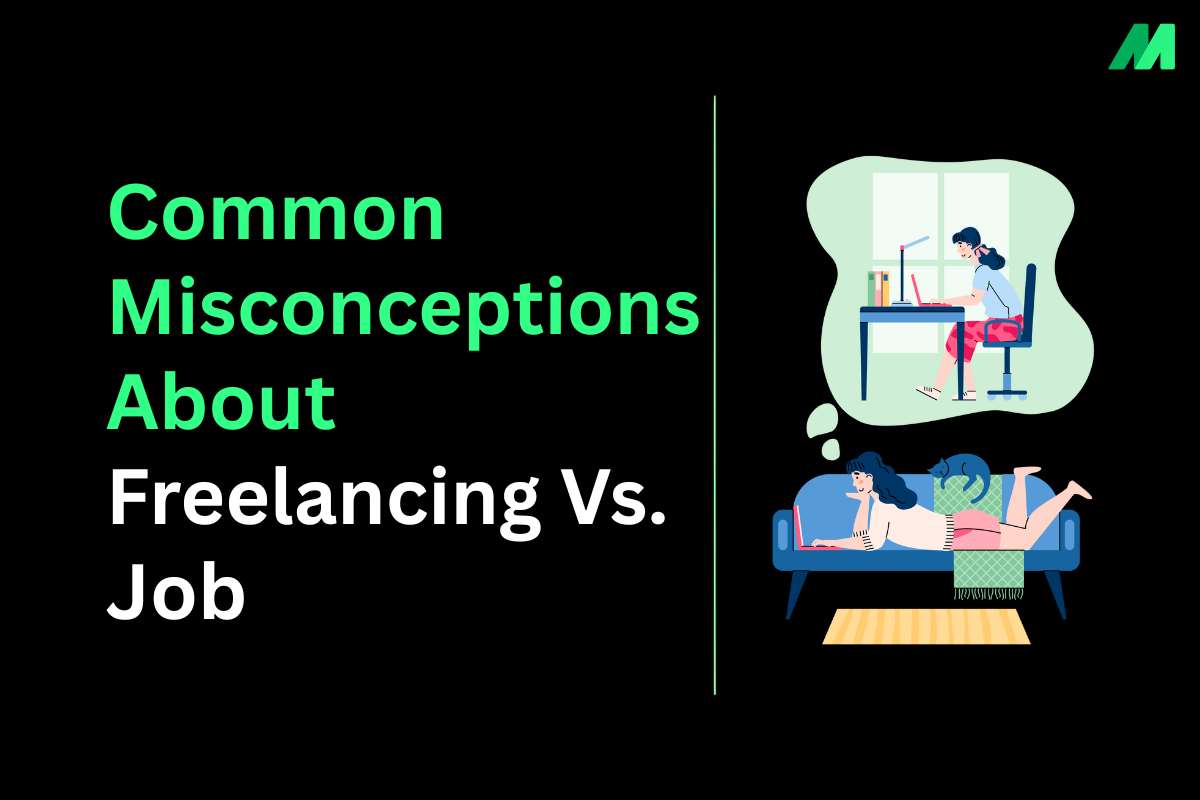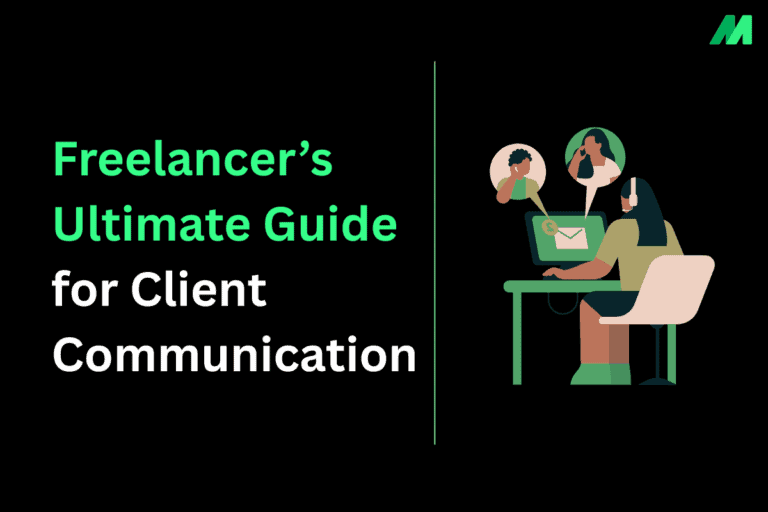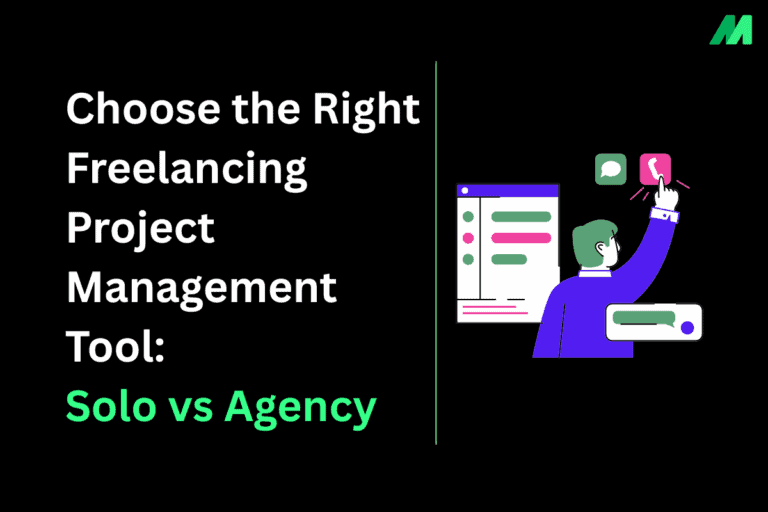With the rise in popularity of freelancing around the world, many myths surrounding this style of employment in relation to traditional full-time jobs are prevalent. This guide simply presents some key realities of common myths and will help you understand the reality of freelancing as a true means of employment that can be comparable to a regular job.
Myth-Busting Common Misconceptions About Freelancing Vs. Job
| Myth / Misconception | Freelancing Reality | Traditional Job Reality |
| Not a real job | Manage clients and projects like own business | Fixed roles with employer supervision |
| Need a degree | Skills and results matter more than degrees | Formal qualifications often mandatory |
| Extroverts only | Introverts succeed with online communication | Varies by job; some require face-to-face interaction |
| Must master everything | Specializing in a niche is better | Broader skill sets expected or defined roles |
| Clients come automatically | Must network and market actively | Employers assign work and provide stability |
| Work in pajamas all day | Keep professional routines and workspaces | Office norms and formal dress codes |
| Home work = easy life balance | Distractions exist; focus and support needed | Structured environment supports work-life balance |
| Freelancing = easy money | Requires discipline, multitasking, and hustle | Steady salary with less self-management |
| Lacks stability | Income varies but can be stabilized with multiple clients | Stable salary and benefits |
| Total flexibility | Flexibility with deadlines and client needs | Fixed hours and location limits flexibility |
| Suits everyone | Best for self-motivated and resilient | Suits those preferring routine and structure |
| Always isolated | Build communities, coworking spaces, networks | Regular team and social interaction |
| No benefits | Must manage own benefits | Employer provides health, retirement, and more |
| Only for experts | Open to all skill levels including beginners | Clear entry to senior progression |
| Job security | Varies with clients; can build long-term stability | Contractual stability and legal protections |
| Work hours | Often irregular, self-managed | Fixed schedules and attendance |
1. Freelancing Is a Real and Professional Career
Freelancers all run small businesses, working with clients, handling projects, and completing work alone. A freelancer might take on graphic design work with different clients working on marketing materials and logos, instead of a fixed period of time defined by a regulated hourly or daily rate with an employer. Therefore, freelancing requires organization and professionalism similar to what is expected by employers with a regular job..
2. You Don’t Need a Degree to Start Freelancing
Freelancing usually emphasizes skills and results instead of a formal education in ‘traditional’ jobs. As an example, a recent graduate with good writing skills can build their portfolio by starting to freelance as a content writer, initially working on smaller projects, and then attracting increasingly larger clients. Actual ability and learning capacity are what are important.
3. Freelancing Works for Different Personality Types
Freelancing works for both extroverted and introverted personalities. Although most business communication is done through email or chats, introverts can still excel in freelancing by using their experience, attention to detail, and the ability to communicate effectively with clients. In an illustration, a freelance web developer might meet the client face to face once in their relationship and would still be able to do excellent work managing the relationship electronically.
4. You Don’t Have to Be Good at Everything
Even though many people think freelancers need to become good at a number of skills in order to be successful, this is not the case. Oftentimes, specializing in and focusing on a niche lead to higher demand and higher pay. For instance, it is better for a freelancer to specialize in social media management than to be a digital marketer who does it all.
5. Finding Clients Takes Work
Simply being good at your work does not equate to being successful, as freelancers must promote themselves on the internet, social media, and through networking. A freelance translator will likely reach out to agencies, utilize freelance platforms, and share samples online to attain regular work.
6. Freelancers Have Professional Routines
It’s a common idea that freelancers do nothing but relax in sleepwear all day, but that’s not true. Most stick to a schedule and have a set office or workspace at home. Take freelance writers; they usually have fixed work times and a special area where they work to be more productive and professional.
7. Working from Home Is Challenging
It can be awfully hard keeping work-life balance at home when you work for yourself and have kids. Like every other working person, freelancers also have the need for focused time and not to have a child in their lap. For instance, if a freelancer is a graphic artist, they will utilize childcare hours for focused work and then enjoy the rest of the day with family, not worrying about being interrupted!
8. Freelancing Requires Hard Work and Persistence
In addition to the primary work, freelancers have to do their billing, marketing, and taxes. There are no shortcuts. For instance, a freelance photographer is spending as much time editing, communicating with their client, and getting paid, as they are shooting.
9. Freelancing Can Be Stable and Rewarding
Several freelancers stay on top of their income by working with multiple repeat clients. A content writer dabbling with several companies per month will probably receive the same projects and payments each time. Thus, freelancing can be as stable as a regular job.
10. Flexibility Needs Discipline
Most freelancers set their own hours, but they have deadlines to meet and need to address client needs, and are also typically available evenings and/or weekends. A freelance consultant may have client calls scheduled at various times of the day to satisfy different time zones and also take care of personal business.
11. Freelancing Is Not for Everyone
Freelance careers are a great fit for those who desire independence and embrace uncertainty. Some people operate better in a structured environment, such as working in an office with a routine. To illustrate an example, an accountant in an accounting firm has the benefits of structure and engaged tasks, unlike a freelance accountant who has varied and uncertain workloads.
12. Freelancers Build Supportive Networks
Even though freelancers work solo, they often join coworking spaces or online groups to learn, collaborate, and connect. A community of freelance designers working together on projects or offering guidance. Freelancing does not have to equal solitude.
There are pros and cons to freelancing and traditional jobs. On one hand, as a freelancer, you can decide your own schedule and be your own boss. On the other hand, you need to be highly disciplined, get your own clients, and there may be times when you will not be making anything. In a traditional job, you can expect to get a paycheck, benefits, etc, but there might not be as much freedom.
Ultimately, the best choice is based on what you want for your career and life. It is worthwhile to know what is true and what is not, so that you can make an informed decision based on your objectives.




